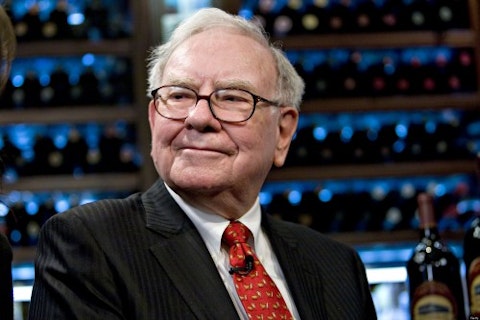How To Become A Successful Investor? Being a successful investor is difficult. The market can be very random and completely irrational much of the time. There will be instances where the stock market goes down 50% and there will be instances where the market doubles. The unexpected occurs a lot. Good companies can trade for cheap prices and cheap valuations can get even cheaper. Blatantly overvalued companies can double or triple and then double again, squeezing the shorts. Due to the unexpected nature of the market, shorting anything is potentially very dangerous. Successful investors generally do not short as the market can be irrational longer than investors can be solvent.
While frustrating, being a successful investor definitely pays off due to the magic of compound interest. In large part due to compound interest, a man that needs no introduction, Warren Buffett of Berkshire Hathaway became one of the richest and most respected men in the world today. With Buffett’s excellent and arguably unmatched track record of investing in mind, let’s take a look at what the Oracle of Omaha recommends in terms of successful investing. Below is an excerpt from Buffett’s shareholder letter in 2013.
My money, I should add, is where my mouth is: What I advise here is essentially identical to certain instructions I’ve laid out in my will. One bequest provides that cash will be delivered to a trustee for my wife’s benefit. (I have to use cash for individual bequests, because all of my Berkshire shares will be fully distributed to certain philanthropic organizations over the ten years following the closing of my estate.) My advice to the trustee could not be more simple: Put 10% of the cash in short-term government bonds and 90% in a very low-cost S&P 500 index fund. (I suggest Vanguard’s.) I believe the trust’s long-term results from this policy will be superior to those attained by most investors – whether pension funds, institutions or individuals – who employ high-fee managers.
(It is important to note that the 90% equity 10% bond mix Buffett would adopt is too aggressive for the normal investor, and the traditional mix is usually 60%-40% or 40%-60% or even more in favor of bonds depending on an investor’s age. By virtue of being ultra-rich, Buffett’s Trustee can afford to be more risk-taking)

According to Buffett, avoiding unnecessary fees and passive investing are two key tenets of successful investing and fortunately, many ETFs, such as the SPDR S&P 500 ETF Trust (NYSE:SPY), iShares Russell 2000 Index (ETF) (NYSE:IWM), Vanguard 500 Index Fund (NYSE:VOO), iShares Barclays 1-3 Year Treasry Bnd Fd (NYSE:SHY), and PowerShares QQQ Trust, Series 1 (ETF) (NASDAQ:QQQ) fit the bill. With that said, lets take a closer look at some of the key ETFs that are tools to addressing the question of ‘How To Become A Successful Investor’? Click next page to see some of the ETFs. For those of you interested, also check out the article, ‘Easy Money: The 10 Most Successful Investors in the World Today‘.
Diversification is perhaps the most important tenet in solving the problem of ‘How To Become A Successful Investor’.
With diversification, one company’s troubles (or even a sector’s troubles) won’t sink a portfolio. With diversification in mind, the SPDR S&P 500 ETF Trust (NYSE:SPY) is an excellent choice for the equity part of a portfolio. The SPDR S&P 500 ETF Trust (NYSE:SPY) seeks to provide investment results that, before expenses, correspond generally to the price and yield performance of the S&P 500 Index, which is a group of 500 of America’s leading companies. The S&P 500 Index is widely regarded as the best single gauge of large-cap American equities and offers around 80% coverage of available market capitalization. The SPDR S&P 500 ETF Trust (NYSE:SPY) ETF has a gross expense ratio of 0.0945% and has an estimated 3-5 year EPS growth rate of 11.6%.

TaLaNoVa/Shutterstock.com
Speaking of the ETFs have track the S&P 500, Vanguard 500 Index Fund (NYSE:VOO) is another major and liquid ETF where the shoe fits the foot. Like the SPDR S&P 500 ETF Trust (NYSE:SPY), the Vanguard 500 Index Fund (NYSE:VOO)’s goal is also to closely track the S&P 500’s index’s returns. In contrast to The SPDR S&P 500 ETF, whose expense ratio is around 0.09% annually, VOO has an expense ratio of 0.05% annually. Buffett also recommended Vanguard 500 Index Fund (NYSE:VOO) in his shareholder letter.

Phongphan/Shutterstock.com
In terms of diversification, the iShares Russell 2000 Index (ETF) (NYSE:IWM) is even more diversified than ETFs that closely track the S&P 500. Specifically, iShares Russell 2000 Index (ETF) (NYSE:IWM) seeks investment results that correspond generally to the price and yield performance of the Russell 2000 Index, which is ‘a float-adjusted capitalization weighted index that measures the performance of the small-capitalization sector of the United States equity market and includes securities issued by the approximately 2,000 smallest issuers in the Russell 3000 Index’. Given that it tracks small cap companies that generally don’t have wide moats, the iShares Russell 2000 Index (ETF) (NYSE:IWM) is riskier than SPY or VOO but the ETF can also yield more reward in bull markets and over time.

SFIO CRACHO/Shutterstock.com
Given that the advancement of technology has played a defining role in our lives, PowerShares QQQ Trust, Series 1 (ETF) (NASDAQ:QQQ) could also be an attractive ETF. The PowerShares QQQ Trust, Series 1 (ETF) (NASDAQ:QQQ)’s goal is to provide investment results that generally track the price and yield performance of the Nasdaq-100 Index, which represents the largest non-financial international and domestic securities listed on The Nasdaq Stock Market based on market capitalization. The ETF includes many leading tech companies in the internet/mobile/biotech space such as Facebook Inc (NASDAQ:FB) and Amgen, Inc. (NASDAQ:AMGN). And now, let’s see the top three on our list of how to become a successful investor.
Follow Powershares Qqq Trust (INDEXNYSEG:QQQQ)
Follow Powershares Qqq Trust (INDEXNYSEG:QQQQ)
Receive real-time insider trading and news alerts

Sergey Nivens/Shutterstock.com
While Buffett recommended that investors have equity exposure in his letter, the Oracle of Omaha also recommended having some short term government bonds. How much bond exposure (and what type of bond) an investor should have depends on his/her age and investment goals. In that regard, the iShares Barclays 1-3 Year Treasry Bnd Fd (NYSE:SHY) could potentially fit the bill as the ETF seeks ‘investment results that correspond generally to the price and yield performance of the Barclays Capital U.S. 1-3 Year Treasury Bond Index, which measures the performance of public obligations of the United States Treasury that have a remaining maturity of greater than or equal to 1 year and less than 3 years’. With that said, for those investors who want to follow Buffett’s advice more closely, there are U.S. government ETFs that have even shorter duration than iShares Barclays 1-3 Year Treasry Bnd Fd (NYSE:SHY). Investing in government bonds won’t make investors rich, but it will preserve wealth and reduce a portfolio’s volatility. Having shorter duration bonds won’t yield as much, but there will be less interest rate risk if rates normalize.

Copyright: rawpixel / 123RF Stock Photo
We are continuing with answers to “how to become a successful investor” – as a bonus, another ETF that can help investors become more successful is the SPDR Dow Jones Industrial Average ETF (NYSE:DIA), whose goal is ‘to provide investment results that, before expenses, generally correspond to the price and yields performance of the Dow Jones Industrial Average’. The DJI is an index of 30 blue chip American stocks. Generally, those 30 blue chip stocks have wide moats, substantial competitive advantages, and a history of paying dividends. Shares of SPDR Dow Jones Industrial Average ETF (NYSE:DIA) are up almost 5% year-to-date and include some of the world’s famous companies such as Exxon Mobil or Disney.

Copyright: designer491 / 123RF Stock Photo
In conclusion, investing in stable, diversified ETFs with the right balance of equity and bond is one of the best bets in terms of addressing the core question ‘How To Become A Successful Investor’. It also helps those who want to become an investor for a living through diversification and lower fees.

Copyright: hin255 / 123RF Stock Photo
Disclosure:None





